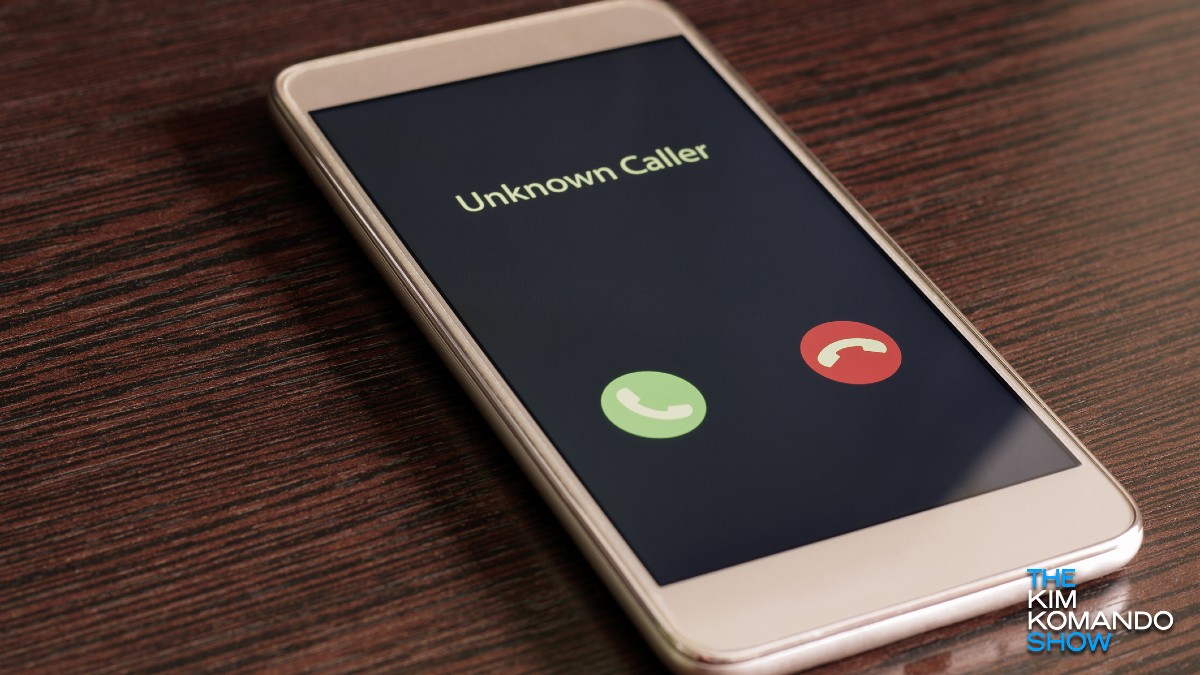How many do you know off the top of your head?
Grandma got played, but not by bingo
Let me tell you a true story that’ll shake you and hopefully protect someone you love from heartbreak or a well-rehearsed scam call.
It happened to a 90-year-old grandmother in Nashville. She picked up the phone because that’s what she’s always done. On the other end was a young woman, her voice trembling, the connection staticky. “Grandma, help! I was in a car accident. I need you to talk to a lawyer right now.”
Her granddaughter Amanda had just graduated from Auburn University. The voice? Familiar enough, especially with the poor signal. And Amanda calling from an emergency? Of course, Grandma was going to listen.
Next comes the ‘lawyer’
He said Amanda needed $6,000 immediately or she could end up in serious legal trouble. So the woman did what any terrified grandmother might do … she complied. She went to the bank and withdrew the cash.
An “errand person” came to her house and picked up the money. Yes, you read that right. Someone came to her front door. That’s how elaborate this scam was.
But later that night, something gnawed at her. She called the number again and said, “I want to talk to my granddaughter.” The scammer hung up. That’s when she dialed the real Amanda and realized the heartbreaking truth.
The good news
Amanda was OK. Her voice was deepfaked by the scammers. The bad news was Grandma was scammed out of $6,000. Lied to. Manipulated. Her family was furious, not at the scammer, but at her.
She said her daughters made her feel embarrassed, even ashamed, she fell for such a scam. That might be the worst part of this entire story.
Let me say this loud and clear: It is not her fault. This wasn’t a mistake, it was a targeted heist. A well-rehearsed act designed to prey on love and urgency.
You need to do this
Area codes and numbers that are probably spam

Whew, the election’s over. The onslaught of robocalls and texts is over, too … right? Nope.
There are fewer political calls and messages, sure, but there are always scammers and spammers. It may be easier for these creeps to get a hold of us now that our phones aren’t constantly lighting up with election-related notifications.
You don't know your phone numbers?!
Trump’s crypto push — July 5th, Hour 1
Will the U.S. be the world’s crypto capital? Here’s what to know before you invest. Plus, streaming fails, Taylor Swift vanity phone numbers, and a viral airport theory. Holly from Phoenix says her brother lost $400K to a Jennifer Aniston deepfake scam.
🍟 McHack at McHire: McDonald’s AI job portal leaked data from 64 million applications. Why? Because the login was basically “admin / 123456.” Hackers didn’t need skills (paywall link), just fingers. Names, emails, phone numbers … all up for grabs. The site was built by Paradox.ai, which now has a new definition of “paradox.”
$5,700
Asking price for 509-SWIFTIE. That’s the phone number 509-794-3843. Taylor Swift-related phone numbers have become a hot commodity. Also for sale: 75-ERAS-TOUR for $4,500 and 41-SWIFT-ERA for $3,300. I have a Roomba that I named “Taylor Swiffer.” I named my iPhone “My little phoney.” Before you ask, none of my tech is named “Hugh Jass.”
I wasted 36 hours trying to do it myself

So many of the calls, emails, messages and DMs I get are about privacy and security. I can’t remember the last time I had a full day where no one asked me some version of “How do I get all this info about me off the internet?”
So much data left exposed for anyone to see

Another day, another monumental data breach. Just because they’re getting more common doesn’t mean you can tune it out. In fact, it’s time to get even more serious about your private information and what’s posted online.
🚨 FBI warns of new phone scam: Criminals are posing as federal agents, telling people they’re about to be arrested unless they pay up. They’re spoofing phone numbers so the calls look like it’s a real government agency asking for money, gift cards or crypto. Hang up and report it.
📞 Hacker hang-up: Hackers leaked 64 million T-Mobile customer records. The data has real names, phone numbers, cookie IDs (the whole privacy piñata), but T-Mobile says it’s “not our circus, not our monkeys.” Maybe this leak needs to go on Maury: “You are NOT the data parent!”
Tech tip: How to find anyone’s email address online

Keeping up with your inbox feels never-ending some days. Between work, your personal life, and all that spam, you might have hundreds of emails to sift through.
Is junk mail getting you down? Do something about it. Spending a little time once will save you from clicking “trash” all day. Tap or click for five simple ways to stop spam.
5 ways to block or hide your number when making calls

Robocalls have been an annoyance for years, and with technology constantly advancing, it’s only going to get worse. And they’re not just interruptions these days. Many are calls from scammers looking to rip you off.
That’s why it’s important to be proactive and stop these calls dead in their tracks. You have several clever ways to keep scams and robocalls at bay. Tap or click here to stop robocalls for good. How are these callers getting ahold of your number in the first place?
